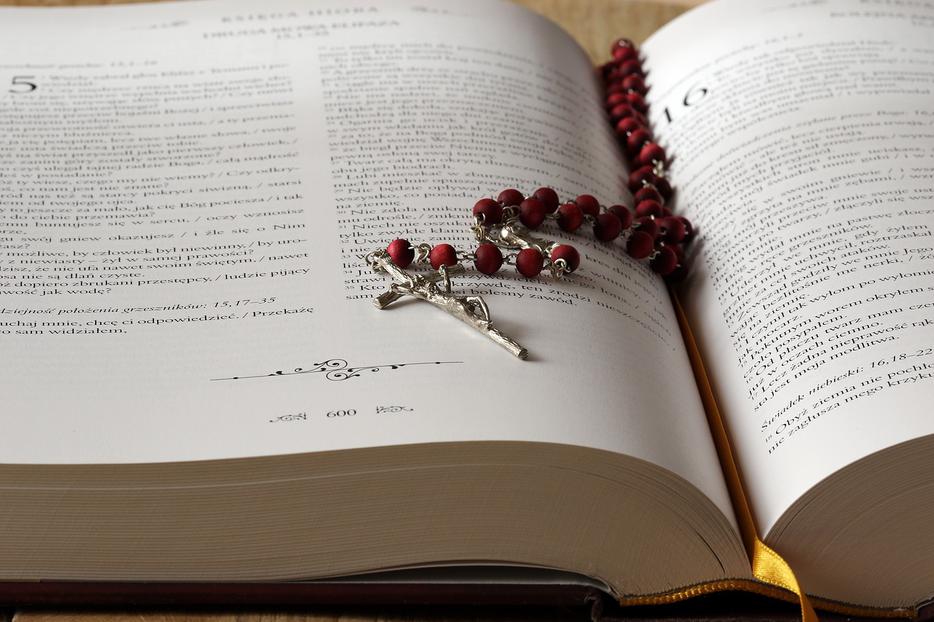What Is Our Response to the Living Word of God?
User’s Guide to Sunday, Jan. 27

Sunday, Jan. 27, is the Third Sunday in Ordinary Time. Mass Readings: Nehemiah 8:2-4A, 5-6, 8-10; Psalm 19:8, 9, 10, 15; 1 Corinthians 12:12-30 or 1 Corinthians 12:12-14, 27; Luke 1:1-4; 4:14-21.
The living reality of the Word of God is presented to us in this week’s readings with a vibrant, irresistible force.
In the first reading, we hear the moving account of a people newly returned to their homeland, determined to restore their broken end of the covenant, just as they had labored to restore the broken walls and gates of their ruined city. Thousands of Israelites gather together, standing attentively to hear Ezra the priest read from the books of the Law from his platform high above them.
Their response is astonishing: first praising the Lord with hands raised, then prostrating themselves on the ground and then weeping with emotion. Ezra, Nehemiah and the Levites rally the Israelites, reminding them that “today is holy to Our Lord” and that it is an occasion to rejoice that their fortunes — and their relationship with God — have been restored. They urge them to celebrate with rich foods and sweet drinks.
In the Gospel, it is Jesus who, like the Israelites in the first reading, has come home. He is given the scroll to read, this time from the Book of Isaiah. He finds the passage which he knows refers to himself, his voice riveting as he reads:
The Spirit of the Lord is upon me, because he has anointed me to bring glad tidings to the poor.
He has sent me to proclaim liberty to captives and recovery of sight to the blind, to let the oppressed go free, and to proclaim a year acceptable to the Lord.
He sits, the traditional posture for teaching, and there is an expectant moment as all eyes are fixed on him. Then he speaks: “Today this Scripture passage is fulfilled in your hearing.” Effectively, he is declaring himself to be the expected Messiah. The Word of God, long cherished by his people, is now present in the flesh and filled with the Spirit. He is the fulfillment of the Scriptures and the key to interpreting them. He is sitting in their midst, and his presence alone gives them much more reason to rejoice than Ezra could ever promise.
But their response, as we will see next week, is far different from the reaction of the newly returned Israelites in the first reading.
What is our response to the word of God? Are we attentive to it? Do we allow ourselves to be moved to praise, repentance and gratitude?
Do we put it on the proper platform in our lives, giving it a place of primacy in our prayer?
The Catechism quotes the Second Vatican Council document Dei Verbum, saying, “The Church ‘forcefully and specifically exhorts all the Christian faithful … to learn ‘the surpassing knowledge of Jesus Christ,’ by frequent reading of the divine Scriptures. ‘Ignorance of the Scriptures is ignorance of Christ’” (Catechism of the Catholic Church, 133).
Perhaps now is a good time to commit, or recommit, to daily reading of Scripture, especially to the Mass readings of each day. These daily readings connect us to the rest of the Church; and as part of the Mass, they also connect us to the Eucharist — in a mysterious way, as much as Jesus Christ really and physically was present as he was sitting among the townspeople of Nazareth.
Claire Dwyer blogs about saints, spirituality and the sacred every day at EventheSparrow.com and contributes regularly
to WomenofGrace.com,
CatholicMom.com and
She is editor of SpiritualDirection.com and coordinates adult faith formation
at her parish in Phoenix, where she lives with her husband and their six children.
- Keywords:
- claire dwyer
- scripture
- user’s guide to sunday

















